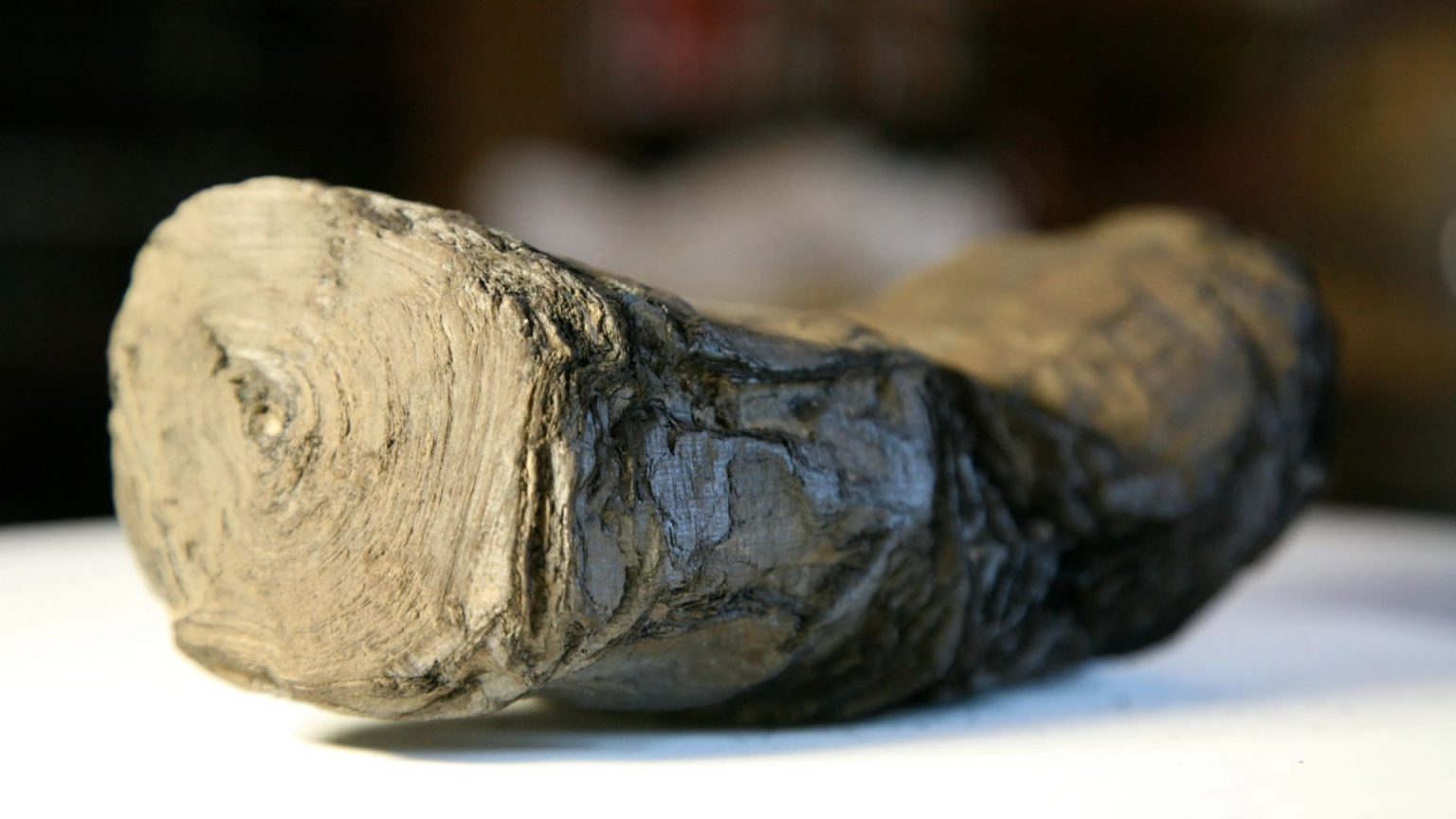The mysterious Roman scroll PHerc.172, blackened by the eruption of Mount Vesuvius nearly 2,000 years ago, has been virtually unrolled by researchers using cutting-edge X-ray technology. Oxford scholars are now seeking the public’s help in deciphering its Greek text, offering a £400,000 prize for anyone who can crack its secrets. This relic is part of approximately 800 scrolls discovered in the Villa of the Papyri, a luxurious estate believed to belong to Julius Caesar’s father-in-law. These scrolls were preserved but turned to fragile lumps of carbon by the volcanic eruption, making physical unrolling impossible without destroying them.
Participants in the Vesuvius Challenge are tasked with developing AI capable of detecting the faint carbon-based ink against the similarly carbonized papyrus in order to decipher the scrolls. Efforts have been made to virtually examine and analyze the scrolls using 3D digital models to uncover lost knowledge of the ancient world. The first milestone in the competition was reached when students deciphered parts of another scroll, revealing the writings of Philodemus, an Epicurean philosopher. These breakthroughs offer new insights into ancient Greek philosophy and the cultural practices of antiquity.
The competition poses new challenges and possibilities, with PHerc.172 offering unique opportunities for breakthroughs due to denser ink and higher contrast in X-ray scans. Scholars speculate that the scroll may contain lost works of literature, histories, or philosophical treatises, with the potential for groundbreaking discoveries comparable to the cultural revival of the Renaissance. The ultimate goal is to unlock lost texts on ethics, mathematics, music, and potentially discover works by long-lost authors, rewriting history and shedding light on ancient scholarly practices.
Using advanced X-ray technology like micro-CT, researchers can create highly detailed 3D scans of ancient scrolls, capturing layers of tightly wound or damaged parchment without physically unrolling them. AI algorithms, particularly those using deep learning, can segment layers of text, identify and separate individual layers from 3D X-ray data, and enhance and reconstruct faint markings or patterns corresponding to ancient writing. These advancements have enabled researchers to make significant progress in deciphering ancient texts and uncovering lost details about ancient Greek philosophy, such as the location of Plato’s burial.
The competition runs until December 2024, with submissions reviewed by a panel of experts in ancient texts and AI development. Participants can access the scroll’s 3D data through the Vesuvius Challenge project and train AI algorithms to detect ink patterns invisible to the human eye. Whether amateur enthusiasts or seasoned researchers, anyone with coding skills or knowledge of ancient languages is invited to contribute to unraveling one of history’s most enduring mysteries. The allure of lost histories and the promise of modern rewards have captured imaginations worldwide, driving the pursuit of unlocking the secrets of ancient scrolls with the help of AI and X-ray technology.


